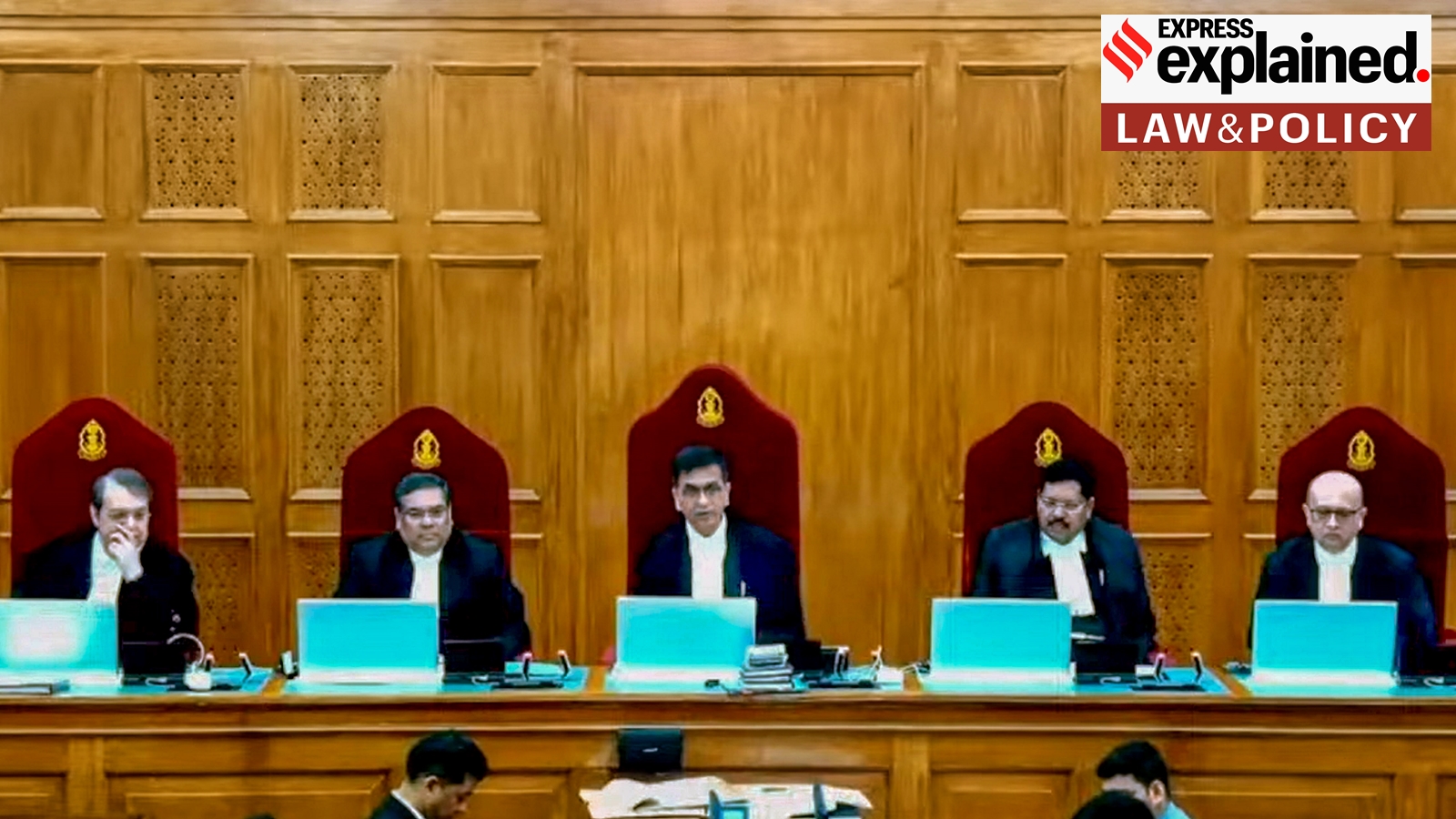
STRIKING down the electoral bonds scheme, the Supreme Court has raised the bar for the state to justify its encroachment of a fundamental right even when its action is perceived to further a competing right. It held that the state has to prove that its measure is the “least restrictive” and that there are no other “equally effective” methods to achieve its stated goal.
So this ruling sets a precedent: the court has struck down a set of legislative amendments on the grounds that the state could have used a method “less restrictive” of fundamental rights.
Essentially, the court did not buy the government’s argument that the electoral bonds scheme, which allows complete anonymity in donations, is the only way to curb black money. It cited Electoral Trusts as an example of a less restrictive alternative to electoral bonds.
The court also disagreed with the government’s argument that a voter’s right to know could be extinguished by the electoral bonds scheme to ensure “donor privacy,” a fundamental right that protects “political self expression.”
Solicitor General Tushar Mehta had argued that political affiliation forms the “inner core of a person’s private life” which the state is protecting through poll bonds.
The ruling also does not defer to the state entirely on what is a legitimate state interest. The ruling makes an attempt to infer this from how the electoral bonds scheme is operationalised rather than taking the state at its word. Justice Sanjiv Khanna, in his concurring opinion, stated that addressing a donor’s “fear of retribution” for his political affiliation cannot be legitimate state interest.
CJI D Y Chandrachud also questions whether donor anonymity can be a legitimate state interest for all donors: distinguishing individuals such as “a student, a daily wage worker, an artist, or a teacher” from a corporate donor.
Asking the question whether there could have been less restrictive alternatives that could achieve the same objective marks a significant departure in the way the Supreme Court has historically attempted to balance competing rights.
The judicial approach in balancing two fundamental rights has largely been done by attaching significance to one right over the other. The court has also, in several cases framed this debate by placing public interest over individual fundamental rights which gave the state an upper hand.
For example, in 2018, the Supreme Court had restricted the right to protest around Delhi’s Jantar Mantar to give effect to the right to a peaceful residence and the state’s power to regulate such activities.
It was in the seven-judge bench landmark ruling in 2017 where the SC upheld the right to privacy as a fundamental right that it prescribed a definite and “structured” proportionality test.
This test essentially requires the state to show that its action, restricting a fundamental right, is proportional to its goal. This is a guard against arbitrary action that could completely wipe out a right in the garb of pursuing even a “legitimate state interest.”
While the privacy ruling laid down the law, it was an academic exercise. Constitution benches since then have applied this test to uphold the law: Aadhaar (2018) and Demonetisation (2023). Electoral bonds, therefore, is a significant departure.
For the latest news from across India, Political updates, Explainers, Sports News, Opinion, Entertainment Updates and more Top News, visit Indian Express. Subscribe to our award-winning Newsletter Download our App here Android & iOS
News Related-
Anurag Kashyap unveils teaser of ‘Kastoori’
-
Shehar Lakhot: Meet The Intriguing Characters Of The Upcoming Noir Crime Drama
-
Watch: 'My name is VVS Laxman...': When Ishan Kishan gave wrong answers to right questions
-
Tennis-Sabalenka, Rybakina to open new season in Brisbane
-
Sikandar Raza Makes History For Zimbabwe With Hattrick A Day After Punjab Kings Retain Him- WATCH
-
Delayed Barapullah work yet to begin despite land transfer
-
Army called in to help in tunnel rescue operation
-
FIR against Redbird aviation school for non-cooperation, obstructing DGCA officials in probe
-
IPL 2024 Auction: Why Gujarat Titans allowed Hardik Pandya to join Mumbai Indians? GT explain
-
From puff sleeves to sustainable designs: Top 5 bridal fashion trends redefining elegance and style for brides-to-be
-
The Judge behind China's financial reckoning
-
Arshdeep Singh & Axar Patel Out, Avesh Khan & Washington Sundar IN? India's Likely Playing XI For 3rd T20I
-
Horoscope Today, November 28, 2023: Check here Astrological prediction for all zodiac signs
-
'Gurdwaras are...': US Sikh body on Indian envoy's heckling by Khalistani backers
